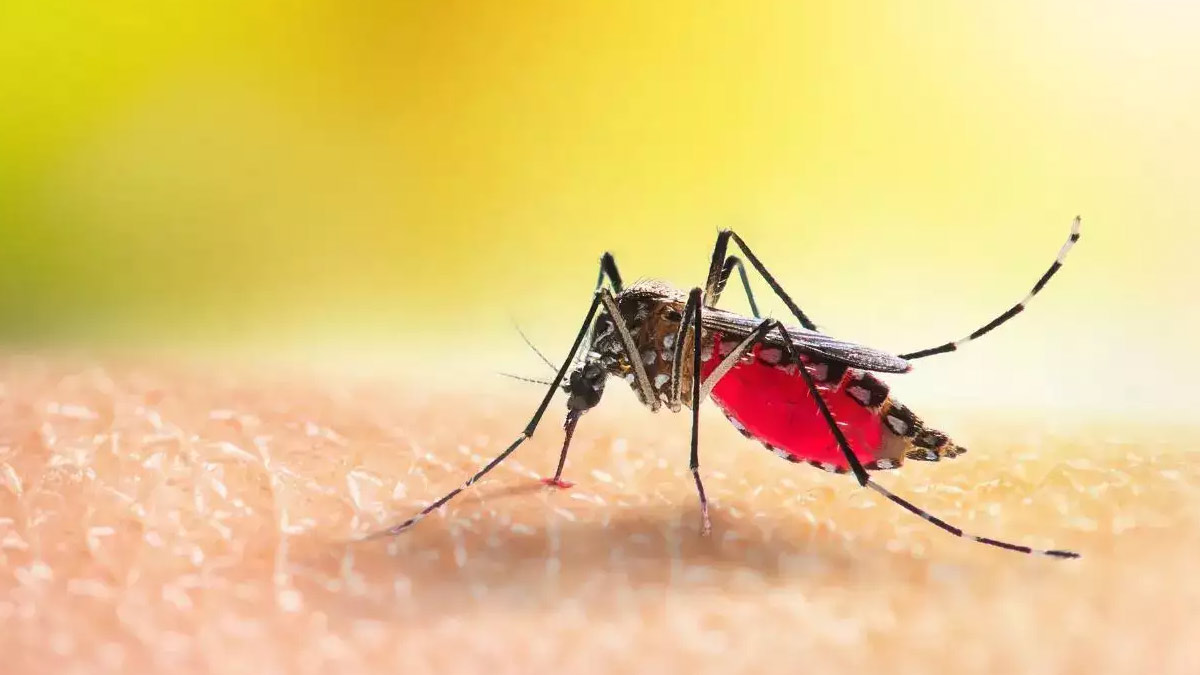
The Health Ministry of Israel recently announced a concerning development: 21 individuals have been diagnosed with West Nile virus. Out of these, 17 have been hospitalized due to severe neurological symptoms. Tragically, over the weekend, two patients succumbed to the virus at Rabin Medical Center. In addition, three others are in critical condition and are currently on ventilators. The first reported case involved a man in his sixties, who was diagnosed at Wolfson Hospital. Initially, he was in moderate condition.
Table of Content:-
Understanding West Nile Virus
West Nile virus is a mosquito-borne illness that has been around for a considerable time. Dr Madhumitha, Infectious disease specialist, at MGM Healthcare highlights that WNV continues to pose an emerging threat to public health worldwide. West Nile fever is an old disease, prevalent in the Middle East since the early 20th century. It was first identified near the Nile River in Uganda in the 1930s, which is how it got its name.
Transmission and Spread
West Nile virus is primarily spread through mosquito bites. These mosquitoes become carriers of the virus after biting infected birds. Humans and other animals are then infected when bitten by these carrier mosquitoes. It is important to note that there is no evidence to suggest that humans can contract the virus directly from birds. While the primary mode of transmission is through mosquito bites, in rare cases, the virus has spread through blood transfusions, organ transplants, from a pregnant person to their fetus, and through human milk.

Symptoms of West Nile Virus
Most people infected with West Nile virus do not exhibit any symptoms. However, approximately one in five people will experience what is known as West Nile fever. Symptoms of this fever include:
- Fever
- Headache
- Muscle aches
- Nausea and vomiting
- Diarrhea
- Rash (concentrated around the chest and back)
- Swollen lymph nodes
- Sore throat
- Pain behind the eyes
Also Read: Most Heatstroke Deaths In Delhi Involved Comorbidities: Health Minister
Severe Symptoms: Encephalitis and Meningitis
In rare instances, the virus can infect the nervous system, leading to serious conditions such as encephalitis (inflammation of the brain) or meningitis (inflammation of the membranes surrounding the brain and spinal cord). Symptoms of these severe conditions include:
- Intense, painful headache
- High fever (above 103°F or 39.5°C)
- Stiff neck
- Confusion
- Muscle weakness
- Uncontrollable muscle movements (tremors or convulsions)
- Seizures
- Paralysis
- Coma
Causes and Complications
West Nile virus belongs to the genus Flavivirus, which includes other viruses such as dengue fever, yellow fever, and Zika. The incubation period for West Nile virus is typically between two to six days after being bitten by an infected mosquito but can extend up to 14 days.
Potential Complications
Although less than 1% of infected individuals develop severe symptoms, the complications can be significant. These complications often involve swelling in the brain or spinal cord, leading to long-term effects such as:
- Memory loss
- Hearing loss
- Difficulty walking or gait disorders
- Muscle weakness
- Abnormal reflexes
- Depression
Also Read: Japan Sees Sharp Surge In Flesh Eating Bacteria Infection; Here’s Everything To Know About It
Treatment and Prevention
Currently, there are no specific antiviral medications available to treat West Nile virus. Mild symptoms can be managed at home with over-the-counter medications similar to those used for colds or flu. However, individuals exhibiting severe neurological symptoms require hospitalization. Medical professionals may administer treatments to manage symptoms and reduce brain swelling, including:
- Antiseizure medications for seizures
- Supplemental oxygen or mechanical ventilation to assist with breathing
- Intravenous (IV) fluids to maintain hydration
- Corticosteroids to reduce inflammation
- Tube feeding for those unable to feed themselves
Bottomline
The recent outbreak of West Nile virus in Israel underscores the importance of public awareness and preventative measures. While the majority of infections are mild, the potential for severe neurological complications necessitates vigilance. By understanding the symptoms, transmission, and prevention strategies, individuals can better protect themselves and reduce the risk of infection.
Also watch this video
How we keep this article up to date:
We work with experts and keep a close eye on the latest in health and wellness. Whenever there is a new research or helpful information, we update our articles with accurate and useful advice.
Current Version
